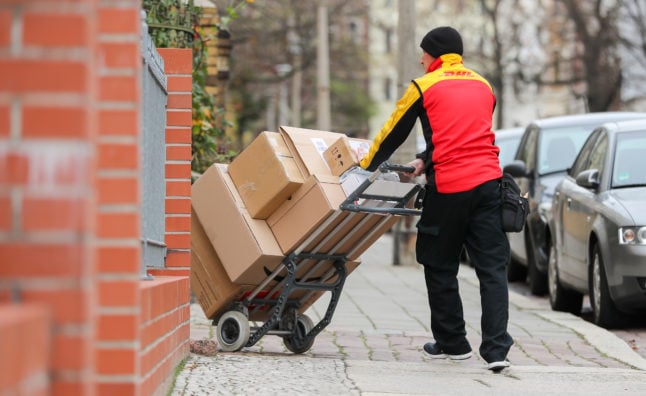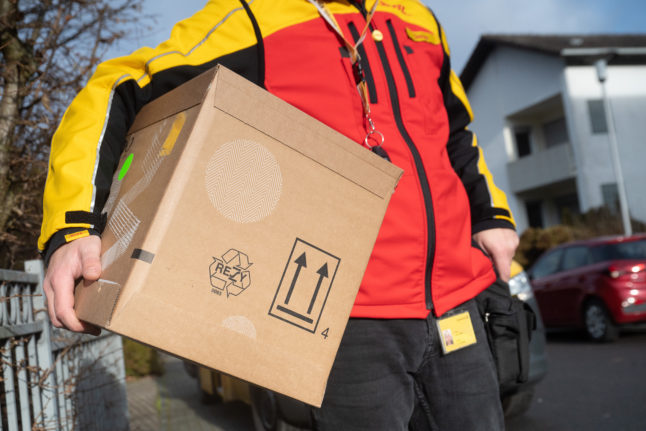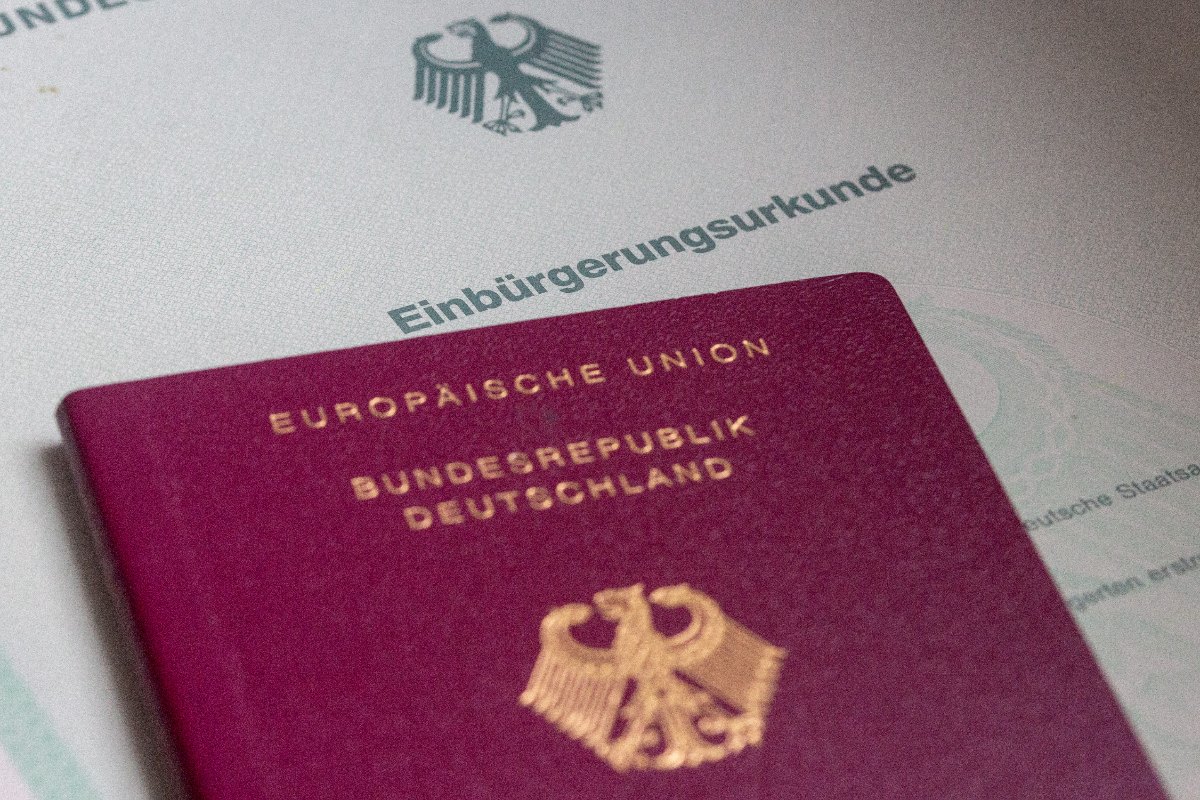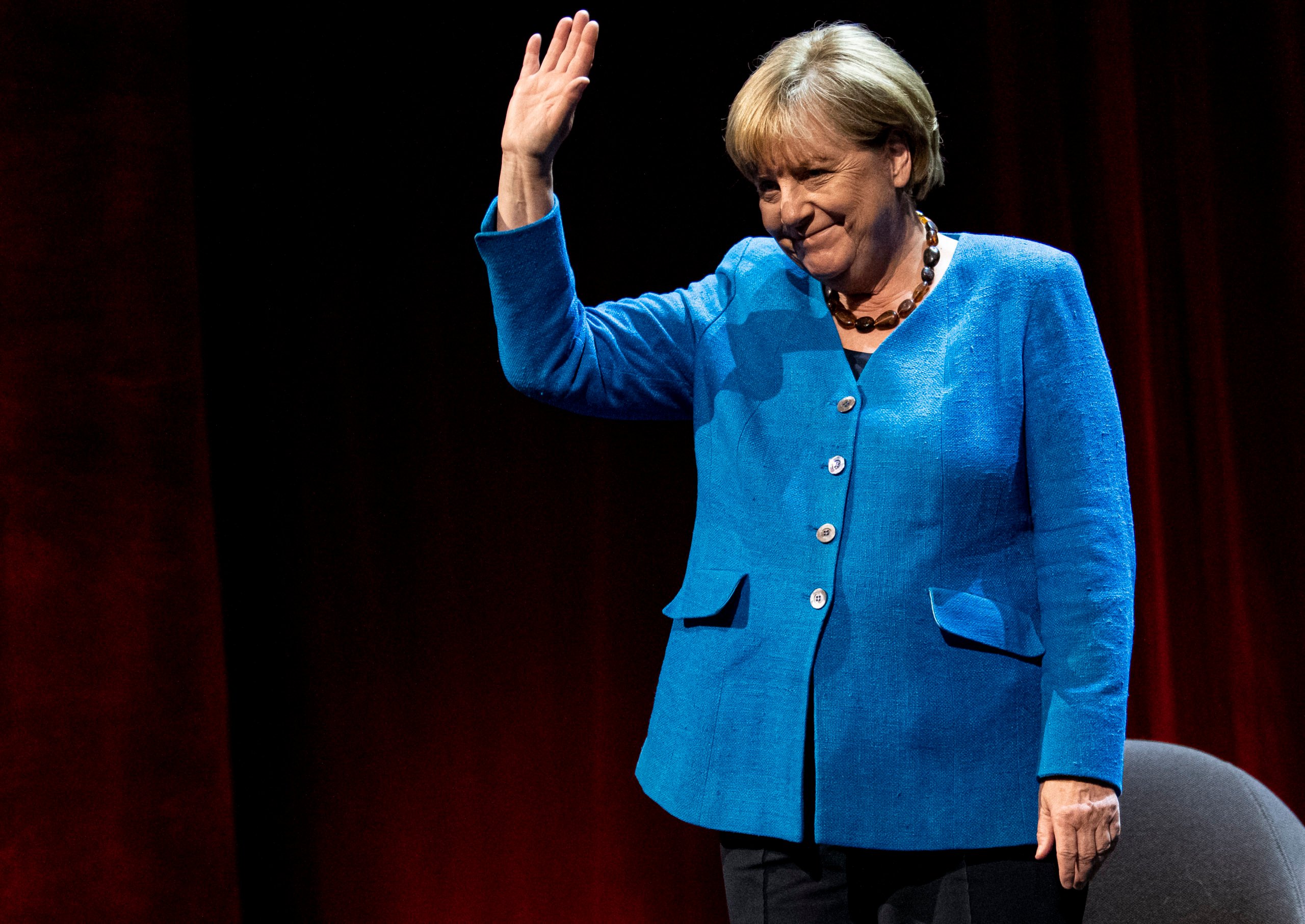Under the changes, sending some packages will become more expensive, both within Germany and internationally.
Logistics group DHL said the price hikes were due to several factors.
“Increased transport, delivery and wage costs, as well as general cost increases, make price rises in national and cross-border parcel shipping unavoidable,” the company said.
Meanwhile, there will no longer be a price advantage for buying parcel and package stamps online for domestic shipments.
The different prices for labels bought online or in store will remain in place for international-bound parcels.
The changes come into force on July 1st.
READ ALSO: EXPLAINED: Why people in Germany are being charged to receive small parcels from outside the EU
What are the changes for domestic-bound packages?
The branch and online prices in the product category ‘Päckchen S’ will rise to €3.99 from €3.79.
The price for ‘Päckchen M’ will be €4.79 from July, up from €4.50 for a store-bought label, and €4.39 online.
The price for the two-kilogram parcel, which is only available online, will rise to €5.49 from €4.99.
Packset and Pluspäckchen products will also cost slightly more due to the increase in paper costs, said DHL.
However, the price to send a 5kg parcel is going down – it will be €6.99 instead of €7.49.
Prices for the 10kg and 31.5kg parcels will remain unchanged.

What’s changing for sending packages abroad?
The cost of many cross-border parcel and small package shipments from Germany will also increase. The logistics company said that’s because of the hike in flight rates as well as higher costs charged by other delivery firms.
The firm said it was “partially passing on to customers what are in some cases steep increases in airfares and the substantial rise in costs charged by delivery partners abroad”.
There are particularly large price hikes for shipments to the United States.
For instance, from July it will cost €49.99 to send a package weighing up to 5kg to the US (zone 5 in Deutsche Post’s price chart) rather than €38.99. The online price for the same product will be €47.99 instead of €36.99.
The price of sending a packet weighing up to 10kg to the US will go up to €79.99 instead of €54.99.
For an overview of the new prices, check out this chart.
READ ALSO: How to challenge high import fees on non-EU parcels in Germany
Are there any other changes to know about?
Deutsche Post says the €1.70 customs data entry fee for shipments to non-EU countries franked at retail outlets will no longer apply from July 1st.
Instead, it will be incorporated directly into the respective retail outlet prices for non-EU shipments at a rate of €1.
The company is also pushing its sustainability strategy, with its GoGreen service being included for all products from July 1st, 2022, without customers having to pay a surcharge. “This is already the case for domestic parcel shipments,” said the firm.





 Please whitelist us to continue reading.
Please whitelist us to continue reading.
Member comments